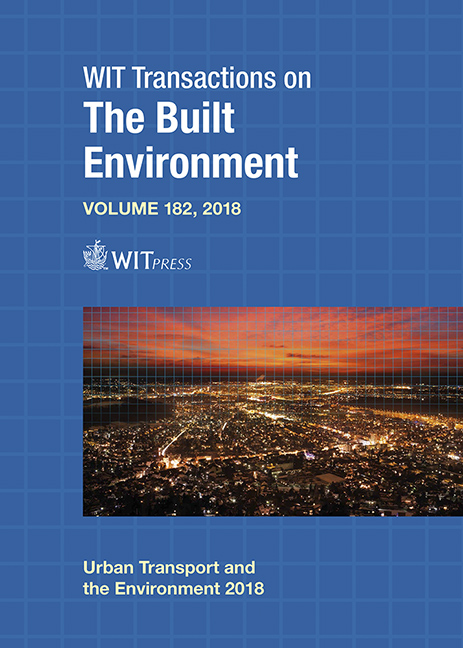CLARIFICATION OF PUBLIC TRANSPORT USAGE CONDITIONS IN AHMEDABAD, INDIA
Price
Free (open access)
Transaction
Volume
182
Pages
12
Page Range
61 - 72
Published
2019
Paper DOI
10.2495/UT180061
Copyright
WIT Press
Author(s)
TAKASHI HIRAIDE, TOMOYA KAWASAKI, SHINYA HANAOKA
Abstract
Ahmedabad, India, has serious traffic congestion problems in peak periods. This is mainly due to the use of cars and motorcycles. The usage of public transport, consisting of a bus system called “AMTS” and a rapid transit bus called “BRTS”, represented only a 12% modal share in Ahmedabad in 2011. This study explores the conditions underlying the non-use of public transport and its feeders among car and motorcycle owners in Ahmedabad. We conducted a household questionnaire survey that gathers respondents’ subjective impressions of public transport and its feeder services in the suburban areas of Ahmedabad in December 2017. A Transport Unacceptance Model is developed based on the Technology Acceptance Model 2 using structural equation modelling based on the collected samples. We reveal that the “no advantage to use” among the owners of cars and motorcycles has the highest effect on the non-use of AMTS among the latent variables, followed by “burden to use”. The observed variables “effort to transfer” and “effort of route choice” significantly affect the “burden to use” latent variable. “Burden to use” regarding auto-rickshaws has a relatively strong effect on the non-use of AMTS. This implies that improving feeder services (i.e. the connectivity between auto-rickshaws and AMTS) is important for enhancing the use of AMTS. As for BRTS, “burden to use public transport (i.e. ticketing system)” and “auto-rickshaw” have the strongest effects among the latent variables. Several negative impressions of auto-rickshaws as a feeder service are observed in both AMTS and BRTS. Particularly, subjective norms such as “family and friends do not use auto-rickshaw” are influential on the non-use of public transport.
Keywords
public transport, feeder, auto-rickshaw, technology acceptance model 2, structural equation modelling, Ahmedabad





